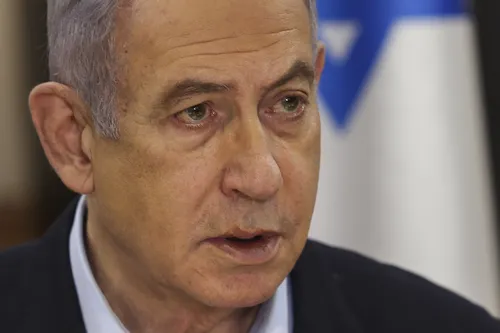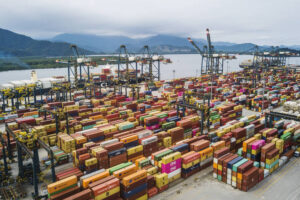
Thousands of people in several cities in Israel took to the streets on Saturday (30) calling for the departure of Prime Minister Benjamin Netanyahu and the formation of a new government. Protesters demand the release of hostages still held by the Palestinian group Hamas in Gaza.
Protesters in Tel Aviv, Jerusalem, Haifa, Be’er Sheva, Caesarea and other cities say Netanyahu would be an “obstacle to the deal,” promising to persist until he leaves power.
“The people of Israel will not forget or forgive anyone who prevents an agreement that would bring them [os reféns] back to us. After 176 days and 4,224 hours, the excuses are over,” Shira Albag told the British newspaper Guardian.
“No more killing, no more despair, the hostages are the most important thing,” the protesters said. Israeli police used water cannons to disperse the crowds. At least 16 people were arrested in the protests.
Attack on journalists
Egyptian TV Al-Qahera said that negotiations for a truce, entry of humanitarian aid and release of hostages would resume this Sunday. Despite the UN having approved a resolution demanding a ceasefire, Israel continues with the massacre and has made no progress in negotiations with Hamas.
Foreign ministers from Egypt, France and Jordan call for an “immediate and permanent ceasefire” in Gaza and the release of all prisoners held by Hamas.
On Sunday, Israeli soldiers attacked a tent for journalists inside the Al-Aqsa Hospital complex in Deir el-Balah, in central Gaza. The Gaza government condemns Israel for committing “a new massacre by bombing the tents of journalists and displaced people” at the hospital.
The Palestinian Ministry of Health says 77 people were killed and 108 injured in the last 24 hours. The ministry says the total death toll from Israel’s attacks on Gaza has risen to 32,782, with 75,298 injured.
Context
The current Israeli massacre in the Gaza Strip — or military operation, as Israel calls it — began in October last year, but conditions in the Palestinian territory were already considered “suffocating” by the UN before that.
The 17-year Israeli blockade — to force Hamas, the party that won the Palestinian elections in 2006, to give up power — generated unemployment rates of 45% and food insecurity that affected 64% of the population. The UN estimated that more than 80% of Gaza residents depended on foreign aid to survive.
On October 7, members of Hamas entered Israel and carried out the most violent attack ever suffered by the country, leaving around 1,200 dead and capturing 240 hostages. The Netanyahu government’s response was considered disproportionate by the international community. Daily bombings in what is considered one of the most densely populated territories in the world have caused the deaths of tens of thousands of Palestinians and destroyed the entire infrastructure of Gaza.
The number of fatalities exceeded 32 thousand Palestinians — around 70% women and children —, with more than 8 thousand people missing under the rubble. 35% of the buildings were destroyed and practically all of the more than two million inhabitants were forced to leave their homes.
In the other occupied Palestinian territory, the West Bank, illegal violence carried out by Israeli settlers is daily, with more than 500 deaths. Since the start of the conflict, thousands of Palestinians have been arrested and the government has announced that thousands more will be detained this year.
The UN warns of a humanitarian disaster, accusing Israel of using collective hunger as a weapon of war and highlighting the real possibility that hundreds of thousands of Palestinians will die due to lack of food.
Editing: Rodrigo Durão Coelho
Source: www.brasildefato.com.br

